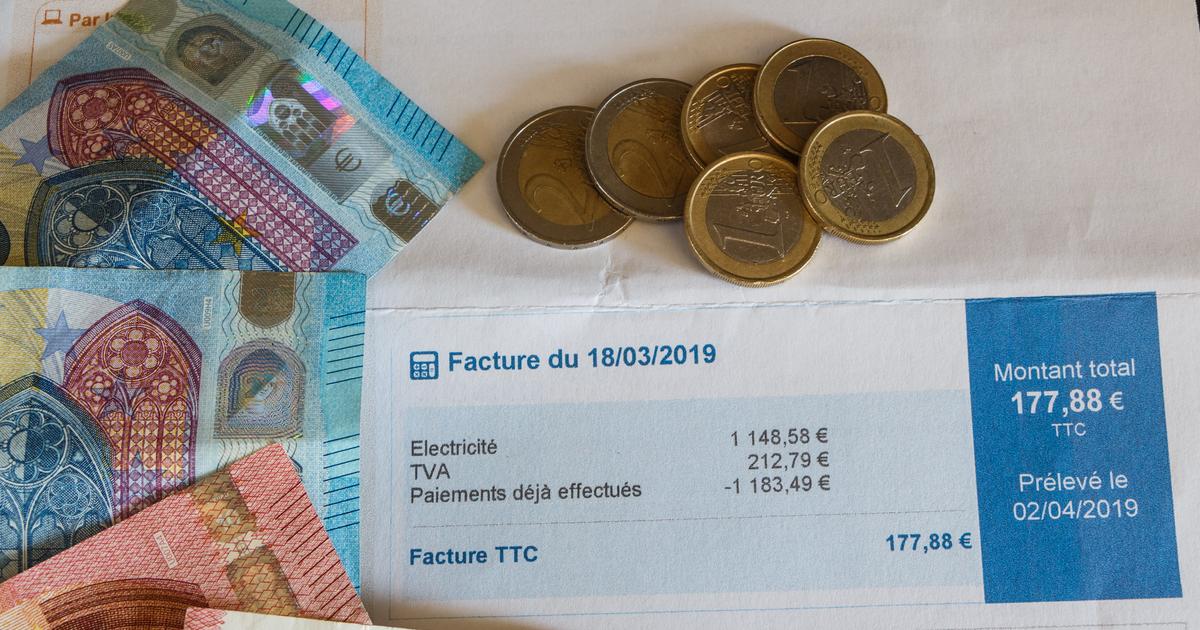Despite the tariff shield put in place in October, gas and electricity bills remain a source of concern for the French, even more so since the start of the war in Ukraine.
The price of electricity, capped at 4%, made it possible in February to counter a planned increase of 44.5%, according to the Energy Regulatory Commission.
In mid-February, the price of gas was six times higher than in 2020. Even if the protection device has been extended and today blocks the prices of all types of gas contracts, many consumers are wondering on the alternatives available to them, and on the steps to follow.
Le Figaro
takes stock.
To discover
SIMULATOR - Are you paid well?
Read alsoTotalEnergies surfs on soaring energy prices
Does my supplier have the right to change the price of my contract?
First of all, you should know that the essence of a contract subject to regulated electricity or gas tariffs is based on the action of the public authorities.
It is the State which, with the support of the Energy Regulation Commission, sets and regulates these tariffs, which are then proposed by the incumbent operators, EDF for electricity and Engie for gas.
Alternative providers, on the other hand, are free to offer whatever tariffs they wish.
Over the past few months, your alternative gas or electricity supplier may have notified you of an upcoming price change in your bill.
In reality, “
he has the right to modify his prices, provided that he warns the customer at least one month in advance
”, explains Caroline Keller, head of the information and communication service of the National Energy Mediator.
Communication not always transparent with some suppliers.
“Often, their communication is very ambiguous and does not allow customers to understand the price increase to which they are exposed”,
denounced the general manager of the same mediator Frédérique Feriaud, in November at
Le Figaro
.
Additional condition, a price change is only applicable by the supplier if the customer has entered into a contract of indefinite duration.
Otherwise, it is forbidden to modify the pricing of the contract.
How to change energy supplier?
In the case of a price increase imposed by your supplier, you may be tempted to change supplier to find a better offer elsewhere.
For this, the National Energy Ombudsman strongly advises to play the competition and to use a comparator.
All you have to do is provide basic information on the size of the accommodation, the power of the meter or even its annual energy consumption and the offer best suited to your situation will be put forward.
Once the contract has been signed, the new supplier takes care of terminating your old contract, without any termination and administrative fees being applied.
On the other hand, it will be necessary to remain lucid about the current reality of energy prices.
“
In July, it was possible to find offers 10% lower than the regulated tariffs.
Today, it's more like 3-4%
,” says Caroline Keller.
What if my supplier wants me to cancel my fixed price contract?
Having a fixed price contract in these times of crisis represents a boon for the consumer, the cost of the invoice not being impacted by the current increases in energy prices.
For the supplier, on the other hand, this represents a significant loss.
The latter may therefore be tempted to dissuade you from terminating your fixed-price contract in exchange for financial compensation of a few tens of euros, also informing you, as Cdiscount Énergie did, that it intends to leave the market under some months.
Do not be "
impressed by the prospect of leaving the supplier's market
", advises the National Association for the Defense of Consumers and Users.
He is in fact obliged to
», this until the end of the contract.
Read alsoEnergy: bill of around 22 billion euros to offset inflation, says Bruno Le Maire
In the event of an exit from the market, the consumer must then be offered compensation covering at least the difference between the current offer subscribed to and an equivalent offer from another supplier.
Taking into account a differential of 30 to 50% with current energy prices, the amount of damage can amount to "
several hundred euros
" over one year, according to the consumer association.
It therefore advises not to accept the supplier's offer without appropriate compensation and to file a testimonial on its website.
Should I be worried if my supplier goes bankrupt?
Like the British Bulb, some suppliers are experiencing difficulties linked to the rise in energy prices and may have to cease their activity.
In the event that your electricity supplier were to go into compulsory liquidation, your contract would in any case be automatically switched to the emergency supplier designated by the Ministry for Ecological Transition, EDF.
Indeed, the energy regulation commission stipulates that “
any consumer whose supplier fails will automatically switch to the emergency supplier corresponding to him until he chooses an offer adapted to his needs
”.
There is therefore no risk of a power cut.
Your contract would switch to EDF's regulated tariff and you would be totally free to turn to another supplier.
For gas, on the other hand, no emergency supplier has yet been appointed because no bankruptcy has yet been reported.
The Energy Regulatory Commission should soon organize a call for tenders to appoint one.
Is it more interesting to subscribe to a market offer?
Since the opening of the market to competition in 2007, new entrants have multiplied market offers in order to offer an alternative to the regulated tariffs of incumbent suppliers.
According to the Energy Regulation Commission, 32% of residential sites were in market offer for electricity on January 1, 2021. These offers can be offered at a fixed price - which makes it possible to freeze the cost of energy during several months or years - or based on indexation on regulated tariffs or on market prices.
In normal times, these tariffs can be attractive and make it possible to realize significant capital gains compared to the tariffs regulated by the public authorities.
On the other hand, they remain very volatile and subject to variations, which poses a problem in these times of crisis.
“
When market prices were low, it was interesting.
Today, many consumers contact us, bewildered by the amount of their bill
,” reports Caroline Keller.
In the current context, it is therefore better to rely on regulated tariffs which are protected by the tariff shield.
Read alsoThe government faced with the waltz in energy prices
How to return to the regulated tariff?
For electricity, it is quite possible to subscribe to a regulated tariff if your current market offer does not suit you.
In this case, the principle of reversibility applies.
All you have to do is make a request to EDF, which will terminate your old contract and offer you the rates regulated by the public authorities.
For gas, on the other hand, the regulated tariffs will disappear on July 1, 2023 and have therefore been extinguished since November 20, 2019. Since this date, it is therefore no longer possible to return to a gas supplier offering regulated tariffs.
However, it is always possible to turn to other market offers, at any time and free of charge.





